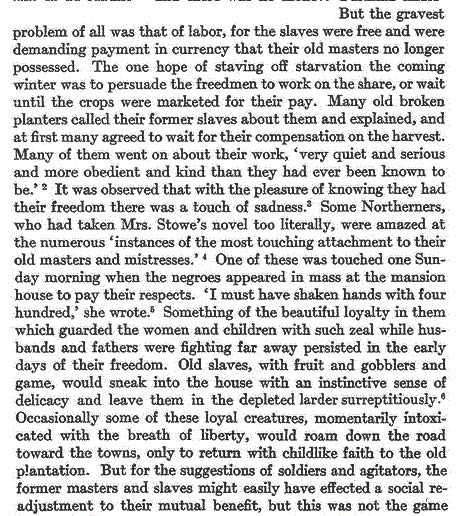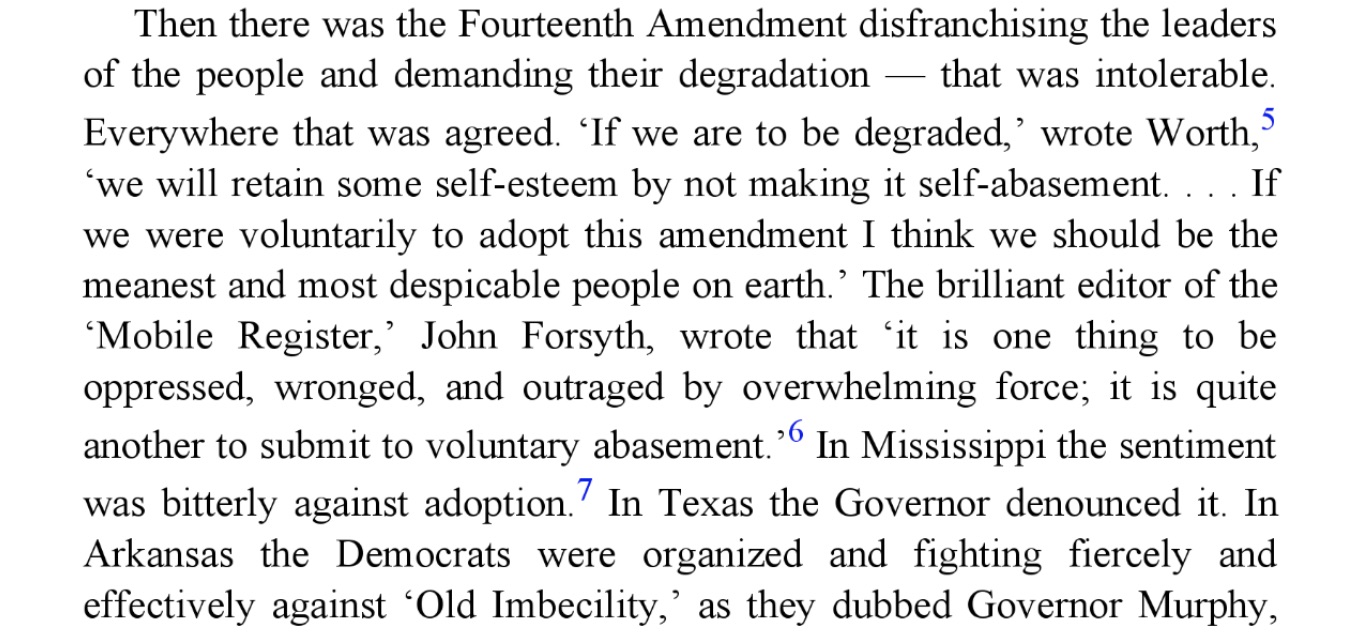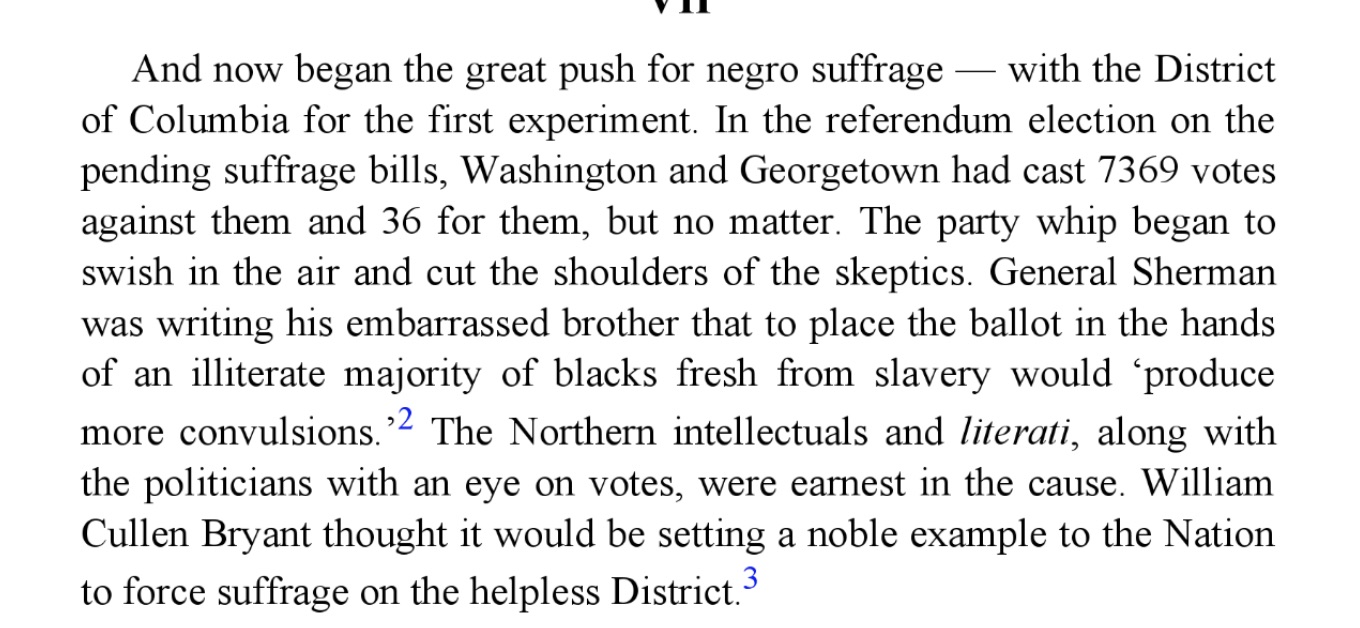

Claude Bowers, The Tragic Era (1929):
"Then came the scum of Northern society, emissaries of the politicians, soldiers of fortune, and not a few degenerates, inflaming the negroes’ egotism, and soon the lustful assaults began. Rape is the foul daughter of Reconstruction….It was not until the original Klan began to ride that white women felt some sense of security. [He continues:]




He wrote a fellow Democrat that "I have written a book that will be the most powerful single factor in bringing the South back into line" in the summer of 1929, after seven Southern states had voted for Hoover, the Republican, in the 1928 campaign. "It is the true story," he added, "of the manner in which the Jeffersonian Republic was overthrown through military force in the South during the years [between] 1865 and 1877...the most tremendous indictment of that [Republican] party ever penned in history." The book was selected by the Literary Guild (like the Book-of-the-Month Club), through which it sold 70,000 copies, and went into 12 printings. The New York Times called it "an immensely important contribution to history," while the Los Angeles Times described the "fanatical" Thaddeus Stevens and the "pious, but equally fanatical" Sumner. (A bit of context here: in the 1920s, Americans prided themselves on their modernity and lack of repression [Freud had recently been translated]. "Puritan" was one of the worst insults in this period, a symbol of backwardness; the review is basically saying that Stevens and Sumner were intolerant, witch-hunting Puritans.) Fortunately, the review continued, "all enlightened students of history" now agreed that "the subversive and unconstitutional methods" used to mistreat the South during Reconstruction "by a bad lot" were wrong. The Nation noted, "there is no history of the sordid epoch better worth reading." Bowers responded to critics by saying, "I write history from the sources and anyone who undertakes to tell me how to do it may go to hell in an elevator."
Bowers gave the keynote at the 1928 Democratic convention, in which he charged the Republican party with having abandoned Jefferson's beliefs for those of Hamilton. The speech was so successful that he was invited to nominate FDR at the 1932 convention (he declined on the advice of his employer, William Randolph Hearst, since FDR was too liberal) and then served as US ambassador to Spain from 1933-39, then to Chile from 1939-53.
This was entirely in the historical mainstream: Here's future President Woodrow Wilson in an article called "The Reconstruction of the Southern States," which ran in the Atlantic Monthly in 1901:
An extraordinary and very perilous state of affairs had been created in the South by the sudden and absolute emancipation of the negroes, and it was not strange that the southern legislatures should deem it necessary to take extraordinary steps to guard against the manifest and pressing dangers which it entailed. Here was a vast ‘laboring, landless, homeless class,’ once slaves, now free; unpracticed in liberty, unschooled in self-control; never sobered by the discipline of self-support, never established in any habit of prudence; excited by a freedom they did not understand, exalted by false hopes; bewildered and without leaders, and yet insolent and aggressive; sick of work, covetous of pleasure,—a host of dusky children untimely put out of school….They were a danger to themselves as well as those whom they had once served….
(Additional material from David Kyvig, "History As Present Politics: Claude Bowers' The Tragic Era," Indiana Magazine of History [March 1977].)